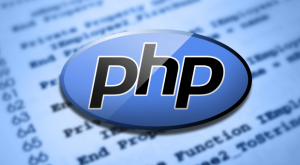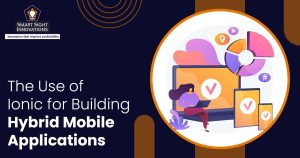 PHP has established itself as one of the most commonly used programming languages around the world. Even Wikipedia and Facebook trust PHP! The language is easy to learn, and developers can quickly complete and launch their products. It has also proved to be a well-tested foundation, as third-party frameworks can be built on top of PHP.
PHP has established itself as one of the most commonly used programming languages around the world. Even Wikipedia and Facebook trust PHP! The language is easy to learn, and developers can quickly complete and launch their products. It has also proved to be a well-tested foundation, as third-party frameworks can be built on top of PHP.
Several PHP frameworks can help engineers in creating robust apps and websites. Here, we look at seven of the most trusted options.
Symfony
When it comes to frameworks that have taken PHP development to the next level, Symfony is one of the first frameworks to be penned down in any top-five list. The mature framework has become a hot favorite for developers due to its reusable components (50 standalone) that can be used in any PHP project. SensioLabs has developed Symfony, and the community consists of hundreds of developers and contributors. This framework also has exhaustive and comprehensive documentation.
The framework uses Doctrine ORM and is based on the MVC pattern. HTML is rendered with the Twig template engine and is suitable for projects in which PHP development engineers need optimization, support and predictability. Symfony is preferred for enterprise projects due to the availability of multiple drivers for enterprise databases. Lastly, its built-in-testing capabilities make advanced functional and unit testing extremely easy.
Laravel
Laravel has earned a reputation as the most appreciated open-source, free PHP framework. Compared to other options, Laravel helps PHP development specialists in handling complex tasks in a highly secure environment and with ease. Developed by Taylor Otwell and launched in 2011, the framework allows developers to expedite routine tasks like authentication, caching, routing, etc. It can meet the complex backend requirements of both small and large web apps.
The framework’s overall features make app customization easy. Laravel’s security, authentication, template engine view, and MVC architecture make it worth using. There is ample community support to assist lesser experienced PHP development engineers as well.
CodeIgniter
Engineers use CodeIgniter for creating lightweight web apps and APIs. It is suitable for modern web apps due to the support for multiple databases, as well as caching and routing abilities. The framework does not enforce the MVC pattern, and developers can work with a design pattern of their choice.
Apps created with this framework from EllisLab offer fast loading times, require less optimization, and show outstanding performance. PHP development specialists also use the framework as a toolkit for increasing the overall project development speed.
YII
YII enables PHP development professionals to integrate PHP with the popular testing framework, CodeCeption. The framework is popular on account of its easy installation process and versatility.
YII is often compared with Laravel due to its quicker testing and development time. On the other hand, parallels are also drawn between YII and Symfony because of its low memory usage (1.4 MB) for every request.
Thanks to its high performance, reduced memory requirements, lightweight code and security features, developers use it for e-commerce projects and developing CMS, forums, as well as portals. As this framework is in high demand, it is easy to find experts in PHP development using the YII framework.
CakePHP
Loaded with a perfect collection of elements, this cohesive framework is highly organized. CakePHP also happens to be the most straightforward framework to learn. An elevated security offering, abbreviated cost, superior compatibility, and a seamless configuration are some of the most sought after aspects of this open-source platform.
CakePHP (who own this framework) development experts suggest the framework’s coding conventions make the coding procedure hassle-free for engineers. Faster PHP development also helps in reducing the time to market.
Zend (ZF)
Often referred to as a glue framework due to its component-based nature, Zend is an MVC-based object-oriented framework. It allows developers to just focus on the functions and components they need in the app. As Zend integrates with external libraries, PHP development engineers can easily extend functionalities. A lot of codes can be reused due to Zend’s object-oriented nature, while also being highly customizable. However, only experienced PHP development professionals can handle Zend tools appropriately as understanding its various functionalities needs time.
Phalcon
Phalcon is another fast open-source framework. It is known as PHP’s C extension as its source code is written in C. PHP development specialists use Phalcon for creating enterprise-grade high-configuration web apps. Developed by Andres Gutierrez, the framework is revised almost every year.
Specific task implementation requires a lesser amount of code. HTTP requests are handled faster as the framework uses minimum resources. The framework’s template engines, caching, PHQL data storage, autoloading and its ORM components are some of its much appreciated features.
It would not be appropriate to claim that one PHP development framework is better than the other. PHP development professionals choose an ideal framework depending on the project’s performance requirements. Are you looking for a trustworthy firm that offers PHP development services to clients from various sectors? If so, you should discuss your needs with experts at Smart Sight Innovations.














